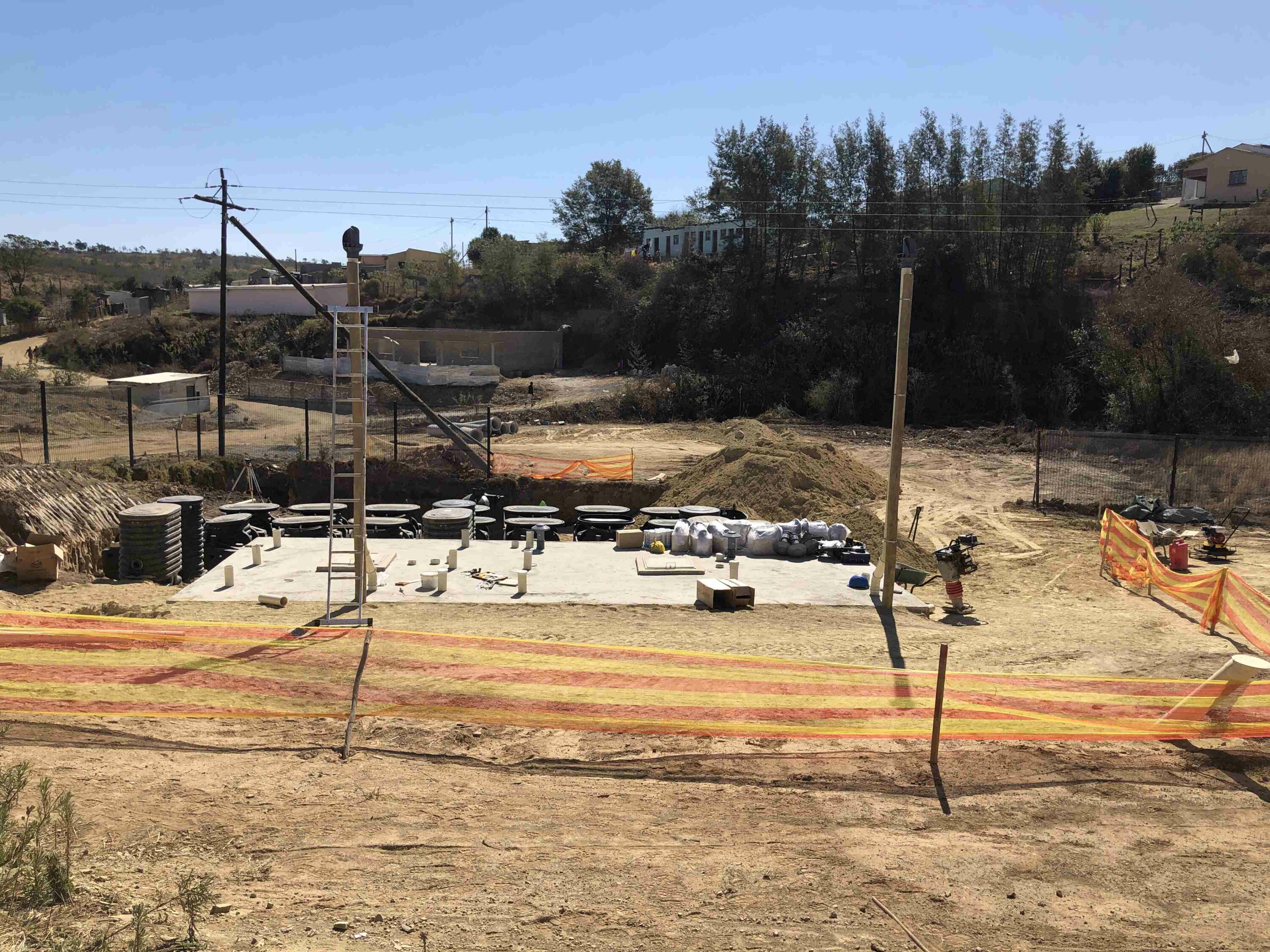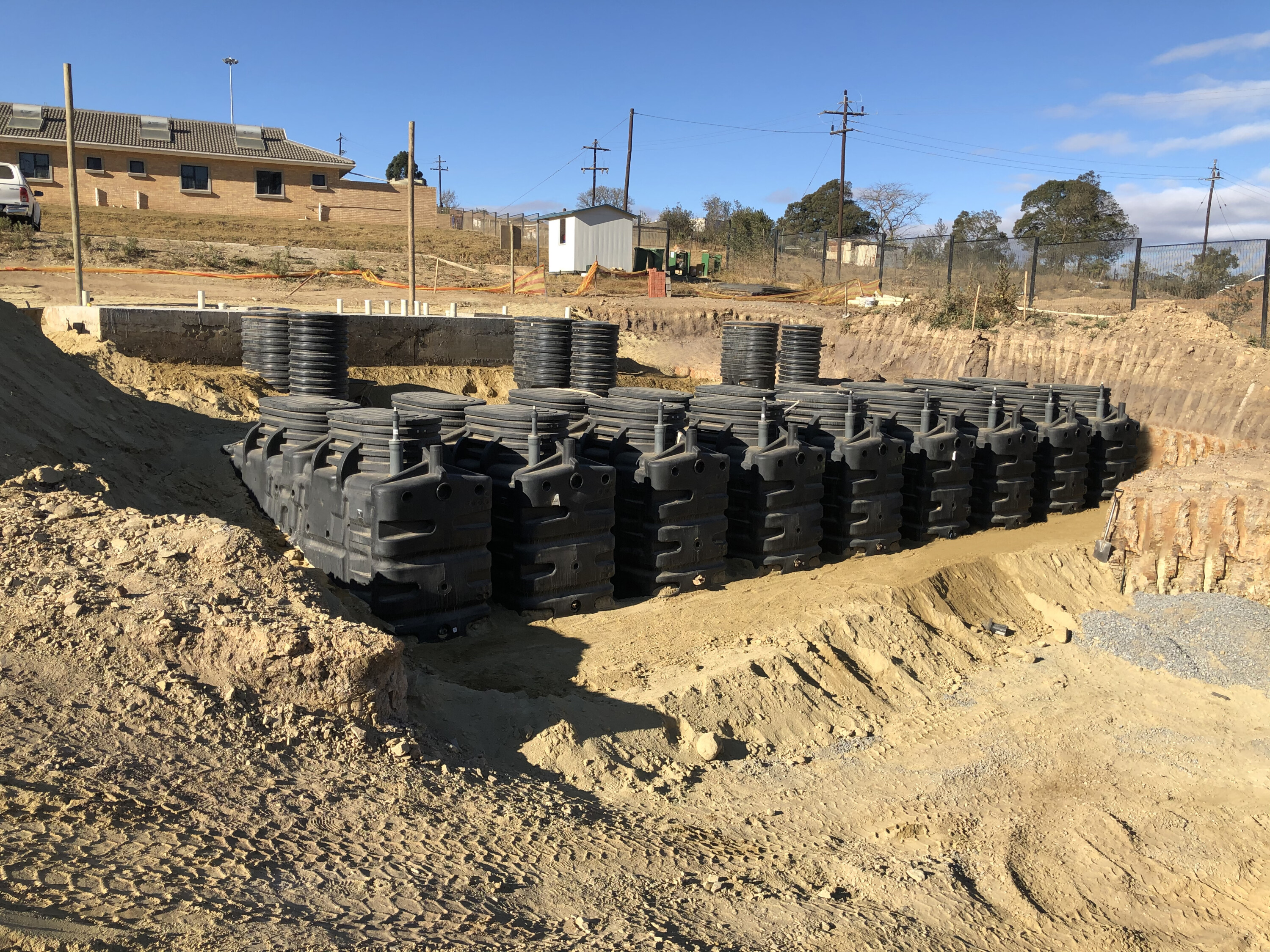A Community Health Centre (CHC) is a health service facility positioned between a clinic and a hospital. In the Eastern Cape, South Africa, these are being developed by the Department of Health (DOG) and Coega Development Corporation (CDC) with the intention of providing accessible, effective and equitable primary health care services in rural communities.
Often such health facilities are located in rural areas where access to reliable electricity and water is lacking, and sanitation facilities are haphazard and rudimentary. As the provision of reliable water, sanitation and electricity is a minimal requirement for the effective operation of a healthcare facility, the engineers have sourced innovative, yet proven solutions to reliably address these infrastructural shortcomings.
David Light, Managing Director of BIOROCK AFRICA, provides an insight into the challenges faced.
The town of Flagstaff is not serviced by municipal sewers. This necessitates the use of onsite effluent disposal systems, such as conventional septic tanks with soak-aways (‘French’ drains).
As part of the geotechnical field investigations, a percolation test was done to determine the percolation properties of the underlying soils. Due to the clayey nature of the subsoils, the percolation test rate was measured and reported to have failed. On-site effluent disposal by subsoil percolation was therefore not considered feasible on the development site with the engineers reporting a high probability of failure in the short term.
The proposed alternative recommended the use of conservancy tanks, but this option was swiftly dismissed by the consulting engineers, DOH and CDC given their prior calamitous experience with these for having a high-cost implication in the long term and requiring frequent emptying by means of unreliable evacuation tanker (honey suckers) operators.
explains Light.
Instead, the engineers together with DOH and CDC, explored alternative onsite effluent treatment systems, and carefully considered the options taking into consideration the unique challenges and specific design aspects of the project.
he highlights.
BIOROCK Africa presented the MULTIROCK system as an appropriate onsite effluent treatment system for the Flagstaff CHC.
No other treatment system on the market could comply with these specific requirements of the project in a single solution and at the same price consideration.
Effluent from showers, wash hand basins, toilets, urinals, and kitchen sinks flow by gravity from the Health Centre to a compartmentalised primary tank. Here solids and liquids are separated. The biodegradable solids undergo partial digestion, whereas non-biodegradable solids are retained for ultimate removal by tanker.
Light explains how the process and technology works:
The liquid component flows by gravity to a series of ECOROCK units operating in parallel (MULTIROCK). The parallel design offers a modular approach to allow growth as demand increases and operationally enables one or more units to be taken offline for servicing while the system remains functional. Inside each ECOROCK unit, the wastewater is biologically treated in an aerobic environment and thereafter disinfected by chlorination before being discharged to the environment. The final treated effluent is designed to be low in organic pollutants, solids, nutrients and pathogens and suitable for discharge to the local environment.
The installation of the system was carefully planned and expertly undertaken by BIOROCK Africa’s appointed partner, Metsitec Water Recycling Systems, based in Gauteng. The installation took place over a period of less than a week, and was supported by the main contractor, Motheo Construction.
Metsitec is a Water Recycling Solution provider based in Centurion, Gauteng, South Africa. Their solutions are targeted at residential and business users. Apart from its design capability, Metsitec also offer two types of water recycling systems namely HYDRALOOP an in-house grey-water recycling appliance ideal for urban and rural applications alike, and BIOROCK, a complete onsite sewage treatment system ideal for users not connected to the municipal grid. Both technologies treat grey water from showers, baths, wash hand basins and washing machines, and with a BIOROCK solution additionally blackwater from toilets, dishwashers, and kitchen sinks.

